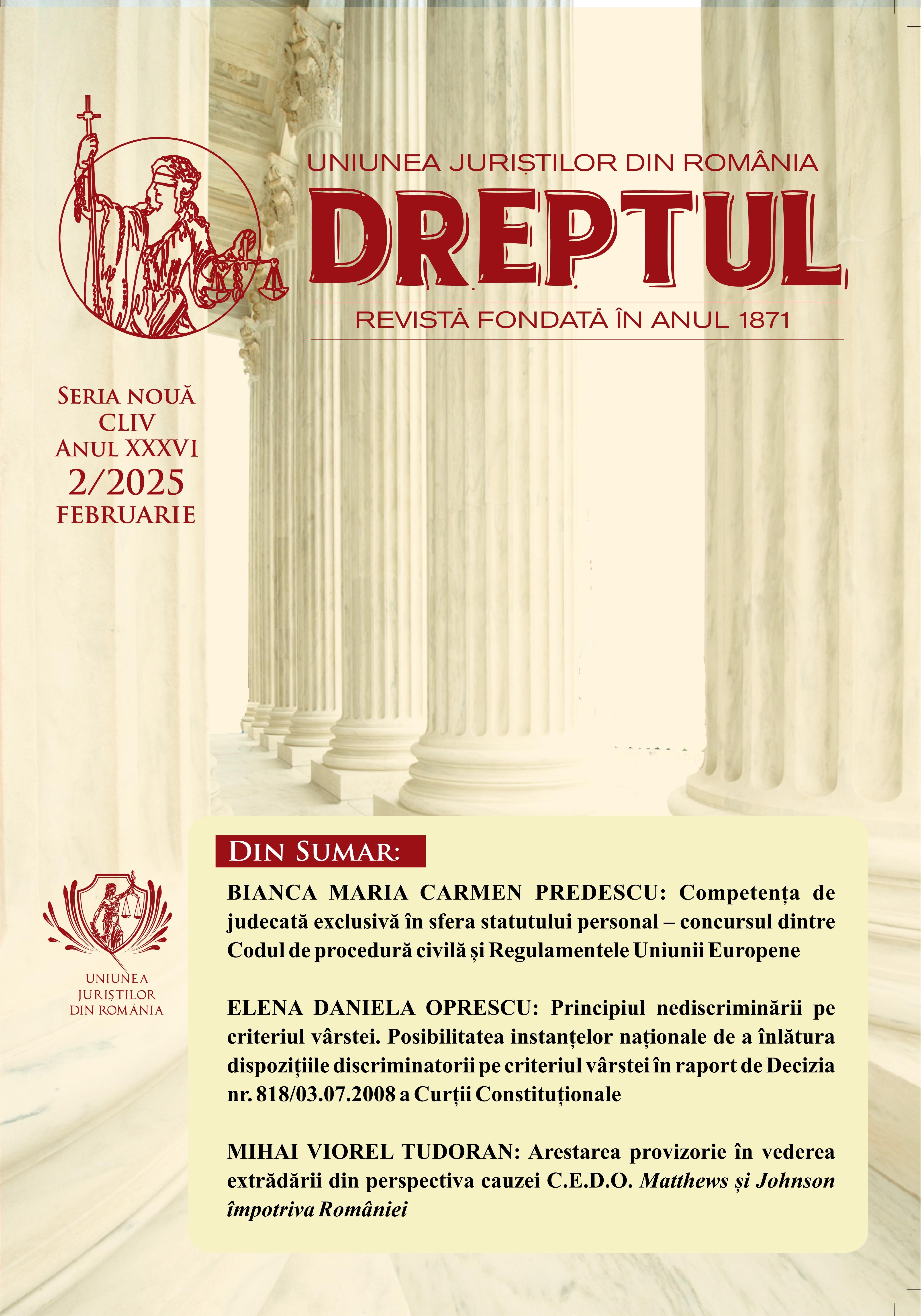Principiul nediscriminării pe criteriul vârstei. Posibilitatea instanțelor naționale de a înlătura dispozițiile discriminatorii pe criteriul vârstei în raport de Decizia nr. 818/03.07.2008 a Curții Constituționale
The principle of non-discrimination on grounds of age. The possibility for national courts to eliminate discriminatory provisions based on age in relation to Constitutional Court Decision no. 818/03.07.2008
Author(s): Elena Daniela OprescuSubject(s): Law, Constitution, Jurisprudence, Constitutional Law, Civil Law
Published by: Uniunea Juriștilor din România
Keywords: principle of non-discrimination on the grounds of age; age-based discrimination; Directive 2000/78/EC; Decision No. 818/2008 of the Constitutional Court;
Summary/Abstract: The principle of equality before the law and the principle of non-discrimination on the grounds of age are fundamental principles of European law, having a higher legal force than the constitutions of the Member States of the European Union and requiring priority application. The CJEU has expressly stated that the rights and measures contained in the treaties of the European Union take precedence, and it cannot be argued that their application would contravene the constitutions of the Member States. The principle of non-discrimination on the grounds of age grants the parties a subjective right that can be invoked, including in disputes between private individuals. Thus, according to CJEU case law, national courts are obliged to set aside the national provisions that violate the principle of non-discrimination on the grounds of age, as concretized by Directive 2000/78/EC. Regarding the ability of national courts to set aside legal provisions considered discriminatory, relevant is Decision No. 818/2008 issued by the Constitutional Court of Romania, which states: "The provisions of Article1, Article 2 paragraph (3), and Article 27 paragraph (1) of Government Ordinance No. 137/2000 on the prevention and sanctioning of all forms of discrimination, as republished, are unconstitutional insofar as they suggest that the courts have the competence to annul or refuse to apply normative acts with legal force, deeming them discriminatory, and to replace them with judicially created norms or provisions contained in other normative acts."The Constitutional Court’s decision is to be applied only in interpreting the provisions of Government Ordinance No. 137/2000 in disputes where discrimination that does not fall within the scope of the directive is invoked, as these are not based on the limited criteria set out in the directive: religion or beliefs, disability, age, and sexual orientation. In disputes that fall within the scope of the directive, Government Ordinance No. 137/2000 must be interpreted in light of the CJEU's considerations, so the arguments of the Constitutional Court of Romania, which, moreover, did not address a case involving discrimination prohibited by the directive, are not to be taken into account.Furthermore, where it is considered that the directive has not been correctly transposed into domestic law, as a result of the Constitutional Court of Romania’s interpretation of the transposing act, individuals may invoke against the Member States the rights derived from the directive.
Journal: Revista „Dreptul”
- Issue Year: 2025
- Issue No: 02
- Page Range: 52-66
- Page Count: 15
- Language: Romanian
- Content File-PDF

